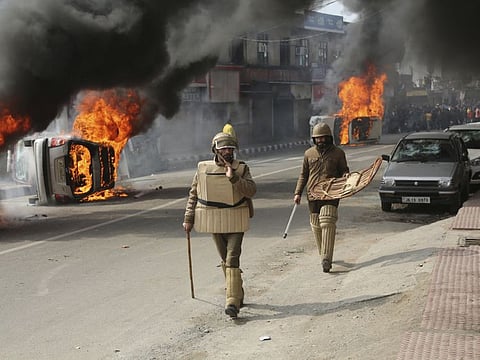Saner voices should speak for peace in Kashmir
Serious efforts must be made to reduce tension on both sides of India-Pakistan border

A crackdown on separatists in Kashmir, thousands of troops airlifted to the state, conflicting voices from political parties and rhetoric from both sides of the border. The result is a state where people do not know what is going to happen next, resulting in the panic buying of essential goods.
It has now been more than a week since a suicide car bombing killed at least 49 Indian security personnel on February 14. Since then, both India and Pakistan have ratcheted up tensions by talking tough. The Indian government has said it will use everything in its power to avenge the attack claimed by Pakistan-based Jaish-e-Mohammed. Pakistan has accused India of warmongering.
The showdown has sparked international concern too with United States President Donald Trump calling it a “very dangerous” situation and that “we would like to see it stop”.
With elections round the corner in India, political parties have jumped onto the bandwagon not wanting to be left behind in the blame game.
What was missing over the past few days was a serious effort at bringing down tensions, especially in Kashmir. Over the years, every terrorist attack there has seen a spike in tension. The voices of anger and revenge make themselves heard, drowning out the peace overtures of the doves. It is no different this time too.
While people around India and Pakistan voice their opinion, those who are hit the most are the people on the ground. Kashmiris have started to hoard essentials following the state government’s decision to ration fuel. The arrest of top separatist leaders and rumours of an imminent war with Pakistan have only worsened the situation.
India has historically refused mediation from a third party on Kashmir. In such a scenario, it is important that both sides begin talks to ease tensions.
Sport has been an unfortunate victim of the Kashmir attack. The Indian cricket board has said that it is writing to the game’s governing body asking the cricket community to sever ties with any nation from where “terrorism emanates”.
History has shown that it is easy to start a war, but difficult to make peace. It takes courage and sacrifice to both fight a war as well as battle for peace. What is required now is for the saner voices to make themselves heard above the din of war and calm tempers on both sides.



